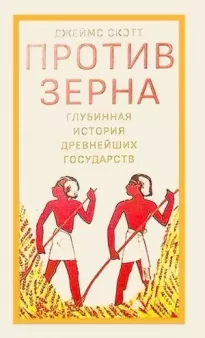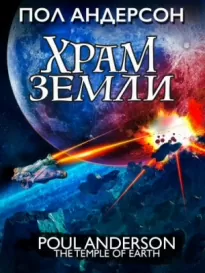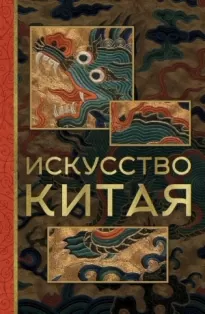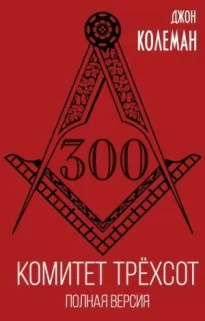Библиография
Геродот, История / пер. и прим. Г. А. Стратановского, под общ. ред. С. Л. Утченко; ред. пер. Н. А. Мещерский. Ленинград: Наука, 1972.
Гребер, Дэвид. Долг: первые 5000 лет истории / пер. с англ. А. Дунаева. Москва: Ad Marginem Press, 2015.
Гринин, Леонид и др., ред. Раннее государство, его альтернативы и аналоги: Сборник статей. Волгоград: Учитель, 2006.
Даймонд, Джаред М. Ружья, микробы и сталь. История человеческих сообществ / пер. с англ. М. Колопотина. Москва: АСТ, 2010.
Джекобс, Джейн. Экономика городов/пер. с англ. Д. А. Ананьева, Г. М. Васильевой; под общ. ред. О. Н. Лугового. Новосибирск: Культурное наследие, 2008.
Дьяконов, И. М. Общественный и государственный строй древнего Двуречья. Шумер. Москва: Издательство восточной литературы, 1959.
Колберт, Элизабет. Шестое вымирание. Неестественная история. Москва: АСТ, 2019.
Леви-Строс, Клод. Первобытное мышление / пер., вступ. ст., примеч. А. Островского. Москва: ТЕРРА-Книжный клуб; Республика, 1999.
Моррис, Иэн. Почему властвует Запад… по крайней мере, пока еще: закономерности истории, и что они сообщают нам о будущем / пер. с англ. В. Егорова. Москва: Карьера Пресс, 2016.
Радкау, Йоахим. Природа и власть. Всемирная история окружающей среды / пер. с нем., сост. указ. Н. Ф. Штильмарк; вступ. слово Ю. Обертрайс. Москва: ВШЭ, 2014.
Салинз, Маршалл. Экономика каменного века / пер. с англ. О. Ю. Артемовой, Ю. А. Огородновой, Л. И. Огородного; науч. ред. и прим. О. Ю. Артемовой; предисл. А. В. Коротаева. Москва: ОГИ, 1999.
Скотт, Джеймс. Благими намерениями государства. Почему и как проваливались проекты улучшения условий человеческой жизни. Москва: Университетская книга, 2005.
Скотт, Джеймс. Искусство быть неподвластным. Анархическая история высокогорий Юго-Восточной Азии / пер. с англ. И. В. Троцук. Москва: Новое издательство, 2017.
Скрынникова, Татьяна Д. “Монгольское кочевое общество периода империи”. В Гринин и др., Раннее, 512–522.
Токвиль де, Алексис. Демократия в Америке / пер. с франц. В. П. Олейника, Е. П. Орловой, И. А. Малаховой, И. Э. Иванян, Б. Н. Ворожцова; предисл. Г. Дж. Ласки; комм. В. Т. Олейника. Москва: Прогресс, 1992.
Фукидид. История. Ленинград: Наука, 1981.
Фукуяма, Фрэнсис. Угасание государственного порядка / пер. с англ. К. М. Королева. Москва: АСТ, 2017.
Хазанов, Анатолий М. “Кочевники евразийских степей в исторической ретроспективе”. В Гринин и др., Раннее государство, 468–489.
Харари, Юваль Н. Sapiens. Краткая история человечества / пер. с англ. Л. Б. Сумм. Москва: Синдбад, 2019.
Хизер, Питер. Падение Римской империи / пер. с англ. А. В. Короленкова, Е. А. Семеновой. Москва: АСТ, 2019.
Цзин, Анна Лёвенхаупт. Гриб на краю света: о возможности жизни на руинах капитализма. Москва: Ad Marginem Press, 2017.
Чатвин, Брюс. Тропы песен. Москва: Европейские издания, 2006.
Чаянов, А. В. Крестьянское хозяйство. Избранные труды. Москва: Экономика, 1989.
Эванс-Причард, Эдвард Э. Нуэры. Описание способов жизнеобеспечения и политических институтов одного из нилотских народов / отв. ред. и авт. предисл. Л. Е. Куббель. Москва: Наука, 1985.
Элиас, Норберт. О процессе цивилизации. Социогенетические и психогенетические исследования: пер. с нем.: в 2 т. Москва: Университетская книга, 2001.
Adams, Robert McC. “Agriculture and Urban Life in Early Southwestern Iran.” Science 136, no. 3511 (1962): 109–122.
_____. The Land Behind Bagdad: A History of Settlement on the Diyala Plains. Chicago: University of Chicago Press, 1965.
_____. “Anthropological Perspectives on Ancient Trade.” Current Anthropology 15, no. 3 (1974): 141–160.
_____. Heartland of Cities: Surveys of Ancient Settlements and Land Use on the Central Floodplain of the Euphrates. Chicago: University of Chicago Press, 1974.
_____. “Strategies of Maximization, Stability, and Resilience in Mesopotamian Society, Settlement, and Agriculture.” Proceedings of the American Philosophical Society 122, no. 5 (1978): 329–335.
_____. “The Limits of State Power on the Mesopotamian Plain.” Cuneiform Digital Library Bulletin 1 (2007).
_____. “An Interdisciplinary Overview of a Mesopotamian City and Its Hinterland.” Cuneiform Digital Library Journal 1 (2008): 1-23.
Algaze, Guillermo. “The Uruk Expansion: Cross Cultural Exchange in Early Mesopotamian Civilization.” Current Anthropology 30, no- 5 (1989): 571–608.
_____. “Initial Social Complexity in Southwestern Asia: The Mesopotamian Advantage.” Current Anthropology 42, no. 2 (2001): 199–233*
_____. “The End of Prehistory and the Uruk Period.” In Crawford, The Sumerian World, 68–94.
Appuhn, Karl. “Inventing Nature: Forests, Forestry, and State Power in Renaissance Venice.” Journal off Modern History 72, no. 4 (2000): 861–889.
Armelagos, George J., and Alan McArdle. “Population, Disease, and Evolution.” Memoirs of the Society of American, no. 30 (1975), Population Studies in Archaeology and Biological Anthropology: A Symposium, 1-10.
Armelagos, George J., et al. “The Origins of Agriculture: Population Growth During a Period of Declining Health.” Population and Environment: A Journal of Interdisciplinary Studies 13, no. 1 (1981): 9-22.
Artzy, Michal. “Routes, Trade, Boats and ‘Nomads of the Sea.’” In Gitin et al., Mediterranean Peoples in Transition, 439–448.
Artzy, Michal, and Daniel Hillel. “A Defense of the Theory of Progressive Salinization in Ancient Southern Mesopotamia.” Geo-archaeology 3, no. 3 (1988): 235–238.
Asher-Greve, Julia M. “Women and Agency: A Survey from Late Uruk to the End of Ur III.” In Crawford, e Sumerian World, 345–358.
Asouti, Eleni, and Dorian Q. Fuller. “A Contextual Approach to the Emergence of Agriculture in Southwest Asia: Reconstructing Early Neolithic Plant-food Production.” Current Anthropology 54, no. 3 (2013): 299–345.
Astrom, Paul. “Continuity and Discontinuity: Indigenous and Foreign Elements in Cyprus Around 1200 BC,” in Gitin et al., Mediterranean Peoples in Transition, 80–86.
Awash, Azam. “The Mesopotamian marshlands: A personal recollection,” in Harriet Crawford, ed., eSumerian World, 639–642.
Axtell, James. “The White Indians of Colonial America.” William and Mary Quarterly 3rd ser. 32 (1975): 55–88.
Bairoch, Paul. Cities and Economic Development: From the Dawn of History to the Present. Trans. Christopher Braider. Chicago: University of Chicago Press, 1988.
Baker, Paul Т., and William T. Sanders. “Demographic Studies in Anthropology.” Annual Review of Anthropology 1 (1972): 151–178.
Barfield, Thomas J. The Perilous Frontier: Nomadic Empires and China. Oxford: Blackwell, 1992.
_____. “Tribe and State Relations: The Inner Asian Perspective.”
In Philip S. Khoury and Joseph Kostiner, eds., Tribes and State Formation in the Middle East, 153–182. Berkeley: University of California Press, 1990.
_____. “The Shadow Empires: Imperial State Formation Along the Chinese Nomad Frontier.” In Susan E. Alcock, Terrance N. D’Altroy, et al., eds. Empires: Perspectives from Archaeology and History, 11–41. Cambridge: Cambridge University Press, 2001.
Beckwith, Christopher. Empires of the Silk Road: A History of Central Eurasia from the Bronze Age to the Present. Princeton: Princeton University Press, 2009.
Bell, Barbara. “The Dark Ages in Ancient History: 1. The First Dark Age in Egypt.” American Journal of Archaeology 75, no. 1 (1971): 1-26.
Bellwood, Peter. First Farmers: The Origins of Agricultural Societies. Oxford: Blackwell, 2005.
Bennet, John. “The Aegean Bronze Age.” In Scheidel et al., Cambridge Economic History, 175–210.
Berelov, Ilya. “Signs of Sedentism and Mobility in Agro-Pastoral Community During the Levantine Middle Bronze Age: Interpreting Site Function and Occupation Strategy at Zahrat adh-Dhra 1. Journal of Anthropological Archaeology 25 (2006): 117–143.
Bernbeck, Reinhard. “Lasting Alliances and Emerging Competition: Economics Developments in Early Mesopotamia.” Journal of Anthropological Archaeology 14 (1995): 1-25.
Berry, R.J. “The Genetical Implications of Domestication in Animals,” in Peter J. Ucko and G. W. Dimbleby, eds. The Domestication and Exploitation of Plants and Animals, 207–217.
Blanton, Richard, and Lane Fargher. Collective Action in the Formation of Pre-Modern States. New York: Springer, 2008.
Blinman, Eric. “2000 Years of Cultural Adaptation to Climate Change in the Southwestern United States.” AMBO: A Journal of the Human Environment 37, sp. 14 (2000): 489–497.
Bocquet-Appel, Jean-Pierre. “Paleoanthropological Traces of a Neolithic Demographic Transition.” Current Anthropology 43, no. 4 (2002): 637–650.
_____. “The Agricultural Demographic Transition (ADT) During and After the Agricultural Inventions.” Current Anthropology 52, no. S4 (2011): 497–510.
Boone, James L. “Subsistence Strategies and Early Human Population History: An Evolutionary Perspective.” World Archaeology 34, no. 1 (2002): 6-25.
Boserup, Ester. The Conditions of Agricultural Growth: The Economics of Agrarian Change Under Population Pressure. Chicago: Aldine, 1965.
Bowersock, Glen W., “The Dissolution of the Roman Empire”, in Norman Yoffee and George L. Cowgill, The Collapse of Ancient States and Civilizations, 165–175. Tucson: University of Arizona Press, 1988.
Boyden, S. V. The Impact of Civilisation on the Biology of Man. Toronto: University of Toronto Press, 1970.
Brain, Charles Kimberlin. The Hunters or the Hunted? An Introduction to African Cave Taphonomy. Chicago: University of Chicago Press, 1981.
Braund, D. C., and G. R. Tsetkhladze. “The Export of Slaves from Colchis.” Classical Quarterly new ser. 39, no. 1 (1988): 114–125.
Brinkman, John Anthony. “Settlement Surveys and Documentary Evidence: Regional Variation and Secular Trends in Mesopotamian Demography.” Journal of Near Eastern Studies 43, no. 3 (1984): 169–180.
Brody, Hugh. The Other Side of Eden: Hunters, Farmers, and the Shaping of the World. Vancouver: Douglas and McIntyre, 2002.
Bronson, Bennett. “Exchange at the Upstream and Downstream Ends: Notes Toward a Functional Model of the Coastal State in Southeast Asia.” In Karl Hutterer, ed., Economic Exchange and Social Interaction in Southeast Asia: Perspectives from Prehistory, History, and Ethnography, 39–52. Ann Arbor: Center for South and Southeast Asian Studies, University of Michigan, 1977.
_____. “The Role of Barbarians in the Fall of States.” In Yoffee and Cowgill, Collapse of Ancient States, 196–218.
Broodbank, Cyprian. The Making of the Middle Sea: A History of the Mediterranean from the Beginning to the Emergence of the Classical World. London: Thames and Hudson, 2013.
Burke, Edmund, and Kenneth Pomeranz, eds. The Environment and World History. Berkeley: University of California Press, 2009.
Burnet, Sir MacFarlane, and David O. White. The Natural History of Infectious Disease, 4th ed. Cambridge: Cambridge University Press, 1972.
Burns, Thomas S. Rome and the Barbarians, 100 BC-AD 400. Baltimore: Johns Hopkins University Press, 2003.
Cameron, Catherine M. “Captives and Culture Change.” Current Anthropology 52, no. 2 (2011): 169–209.
Cameron, Catherine M., and Steve A. Tomka. Abandonment of Settlements and Regions: Ethnoarchaeological and Archaeological Approaches. New Directions in Archaeology. Cambridge: Cambridge University Press, 1996.
Carlson, Anders E. “What Caused the Younger Dryas Cold Event,” Geology 38, no. 4 (2010): 383–384.
Carmichael, G. “Infection, Hidden Hunger. and History.” In “Hunger and History: The Impact of Changing Food Production and Consumption Patterns on Society,” Journal of Interdisciplinary History 14, no. 2 (1983): 249–264.
Carmona, Salvador, and Mahmoud Ezzamel. “Accounting and Forms of Accountability in Ancient Civilizations: Mesopotamia and Ancient Egypt.” Working Paper, Annual Conference of the European Accounting Association, Goteborg, Sweden, 2005.
Carneiro, R. “A Theory of the Origin of the State.” Science 169 (1970): 733–739.
Chakrabarty, Dipesh. “The Climate of History: Four Theses.” Critical Inquiry 35 (2009): 197–222.
Chang, Kwang-chih. “Ancient Trade as Economics or as Ecology.” In Jeremy Sabloff and C. C. Lamberg-Karlovsky, eds., Ancient Civilization and Trade, 211–224. Albuquerque: School of American Research, University of New Mexico Press, 1975.
Chapman, Robert. Archaeology of Complexity. London: Routledge, 2003.
Chatwin, Bruce. The Songlines. London: Cape, 1987.
Chayanov, A. V. The tteory of Peasant Economy. Ed. Daniel Corner, Basile Kerblay, and R. E. F. Smith. Homewood, Ill.: Richard D. Irwin for the American Economic Association, 1966.
Christensen, Peter. The Decline of Iranshahr: Irrigation and Environments in the History of the Middle East, joo BC to AD ijoo. Copenhagen: Museum Tusculanum, 1993.
Christian, David. Maps of Time: An Introduction to Big History. Berkeley: University of California Press, 2004.
Clarke, Joanne, ed. Archaeological Perspectives on the Transmission and Transformation of Culture in the Eastern Mediterranean. Levant Supplementary Series 2. Oxford: Oxbow, 2005.
Clastres, Pierre. La Societe contre lEtat. Paris: Editions de Minuit, 1974.
Coatsworth, John, Juan Cole, et al. Global Connections: Politics, Exchange, and Social Life in World History, vol. 1, To ijoo. Cambridge: Cambridge University Press, 2015.
Cockburn, I.Aiden. “Infectious Diseases in Ancient Populations.” Current Anthropology 12, no. 1 (1971): 45–62.
Conklin, Harold C. Hanunoo Agriculture: A Report on an Integral System of Shifting-Agriculture in the Philippines. Rome: Food and Agriculture Organization of the United Nations, 1957.
Cowgill, George L. “On Causes and Consequences of Ancient and Modern Population Changes.” American Anthropologist 77, no. 3 (1975): 505–525.
Crawford, Harriet, ed. e Sumerian World. London: Routledge, 2013.
_____. Ur: e City of the Moon God. London: Bloomsbury, 2015.
Cronon, William. Changes in the Land: Indians, Colonists, and the Ecology of New England, rev. ed. New York: Hill and Wang, 2003.
Crossley, Pamela Kyle, Helen Siu, and Donald Sutton, eds., Empire at the Margins: Culture and Frontier in Early Modern China. Berkeley: University of California Press, 2006.
Crouch, Barry A. “Booty Capitalism and Capitalism’s Booty: Slaves and Slavery in Ancient Rome and the American South.” Slavery and Abolition: A Journal of Slave and Post-Slave Studies 6, no. 1 (1985): 3-24.
Crumley, Carol L. “The Ecology of Conquest: Contrasting Agropastoral and Agricultural Societies’ Adaptation to Climatic Change.” In Carol L. Crumley, ed., Historical Ecology: Cultural Knowledge and Changing Landscapes, 183–201. School of American Research Advanced Seminar Series. Santa Fe, N. M.: School of American Research Press, 1994.
Cunliffe, Barry. Europe Between the Oceans: ttemes and Variations: g000 BC-AD 1000. New Haven: Yale University Press, 2008.






